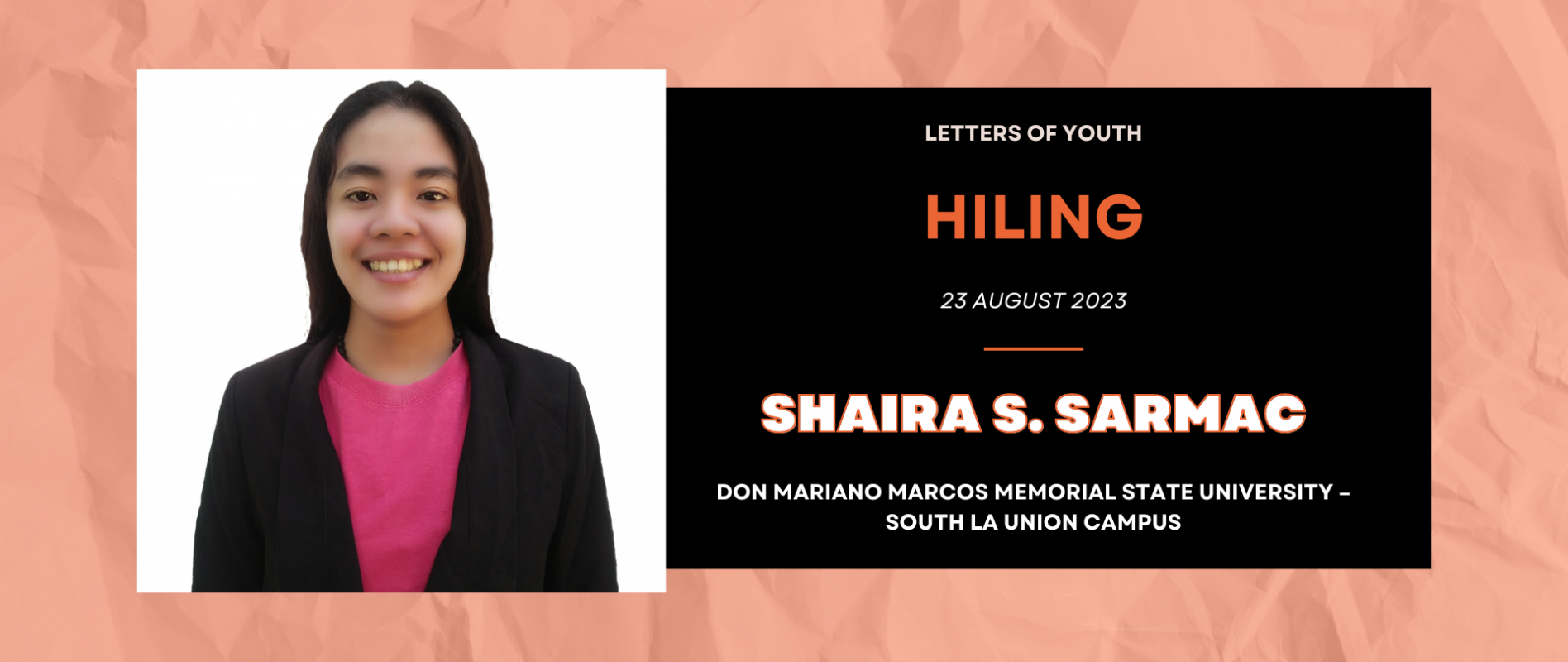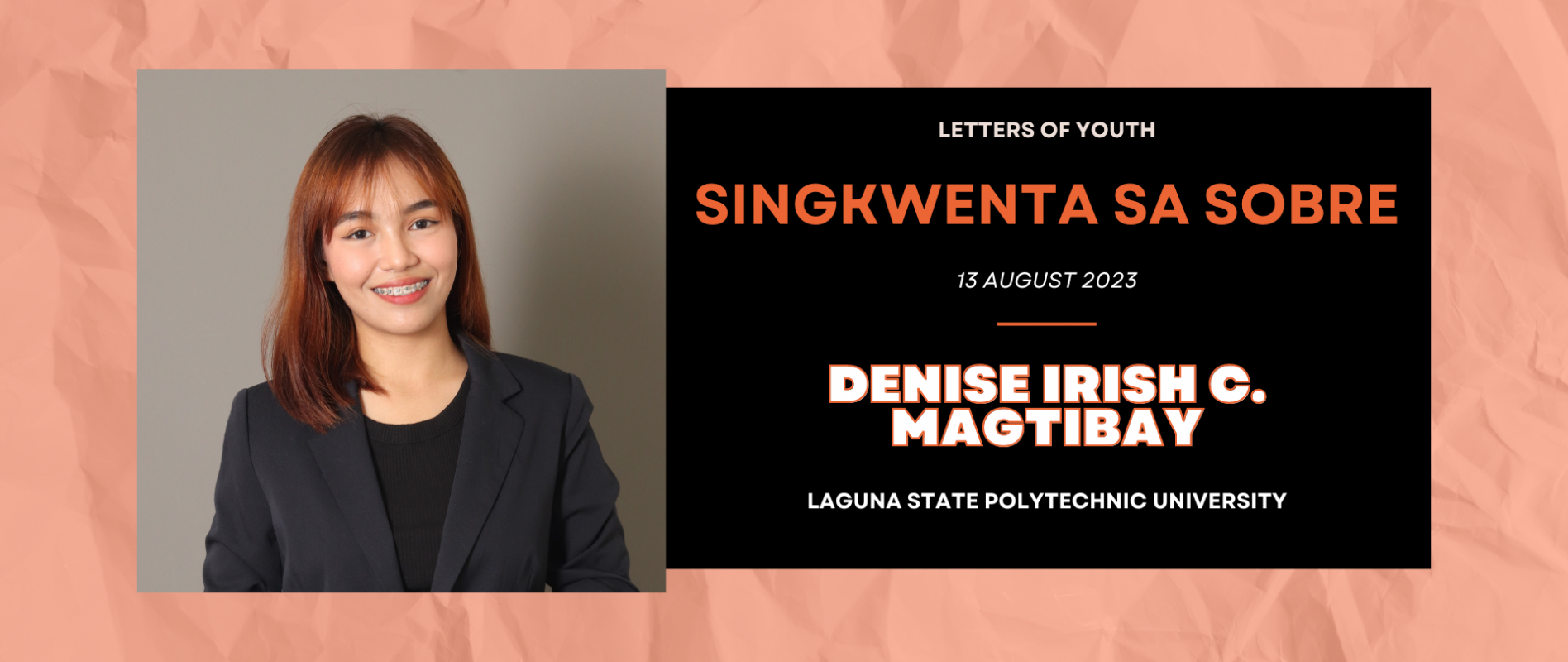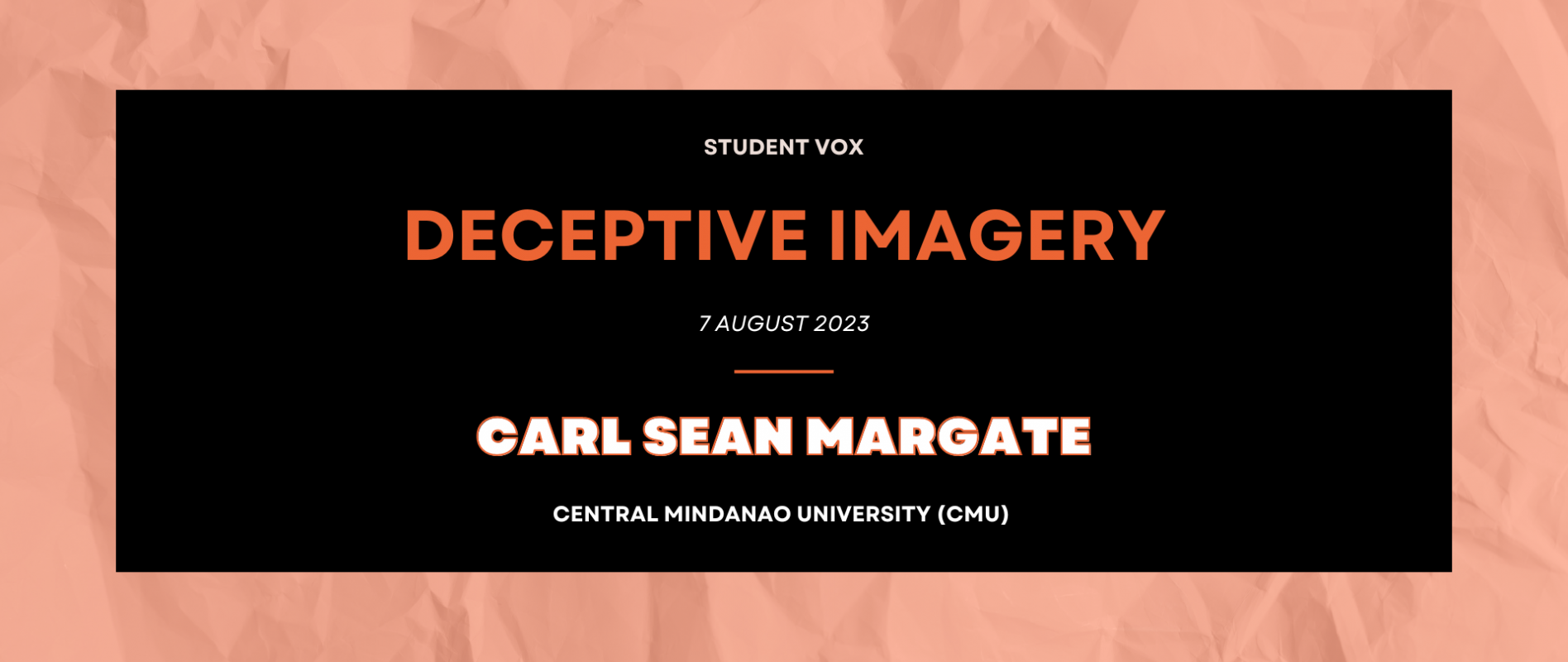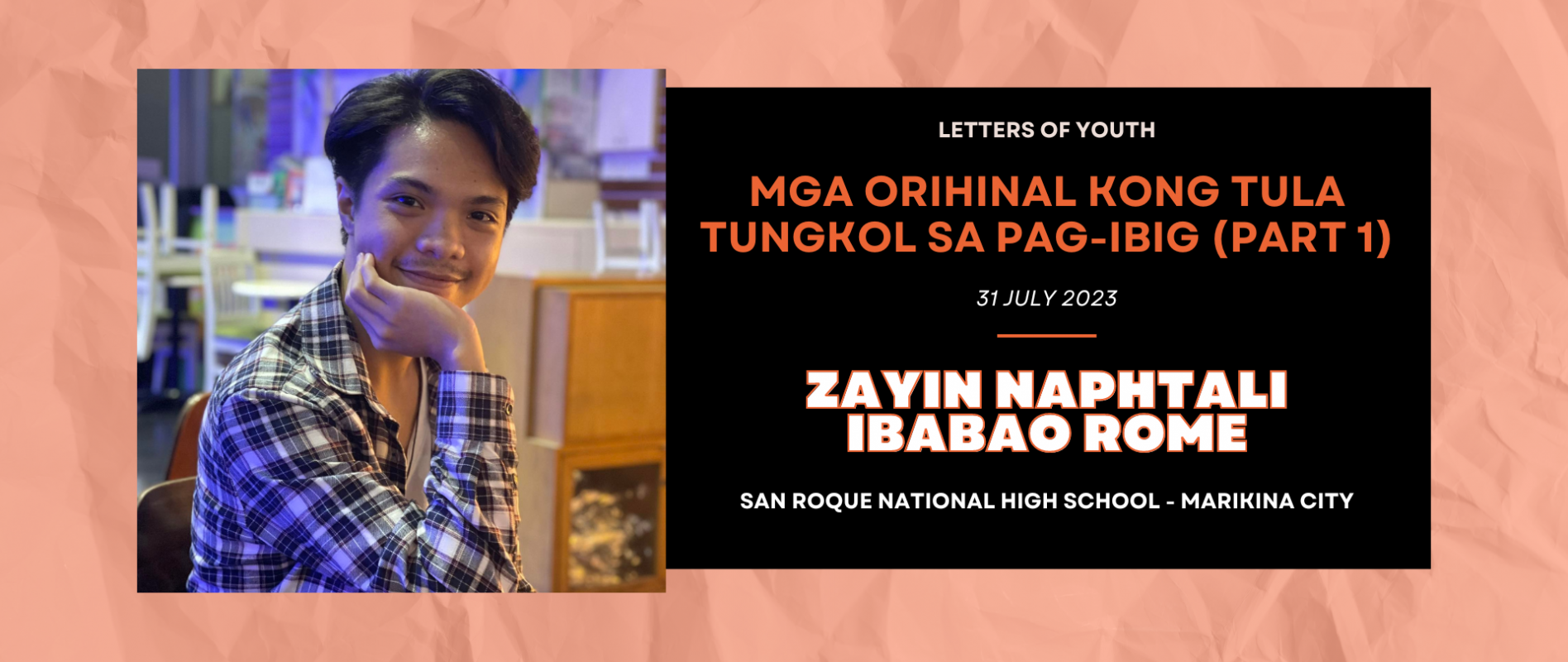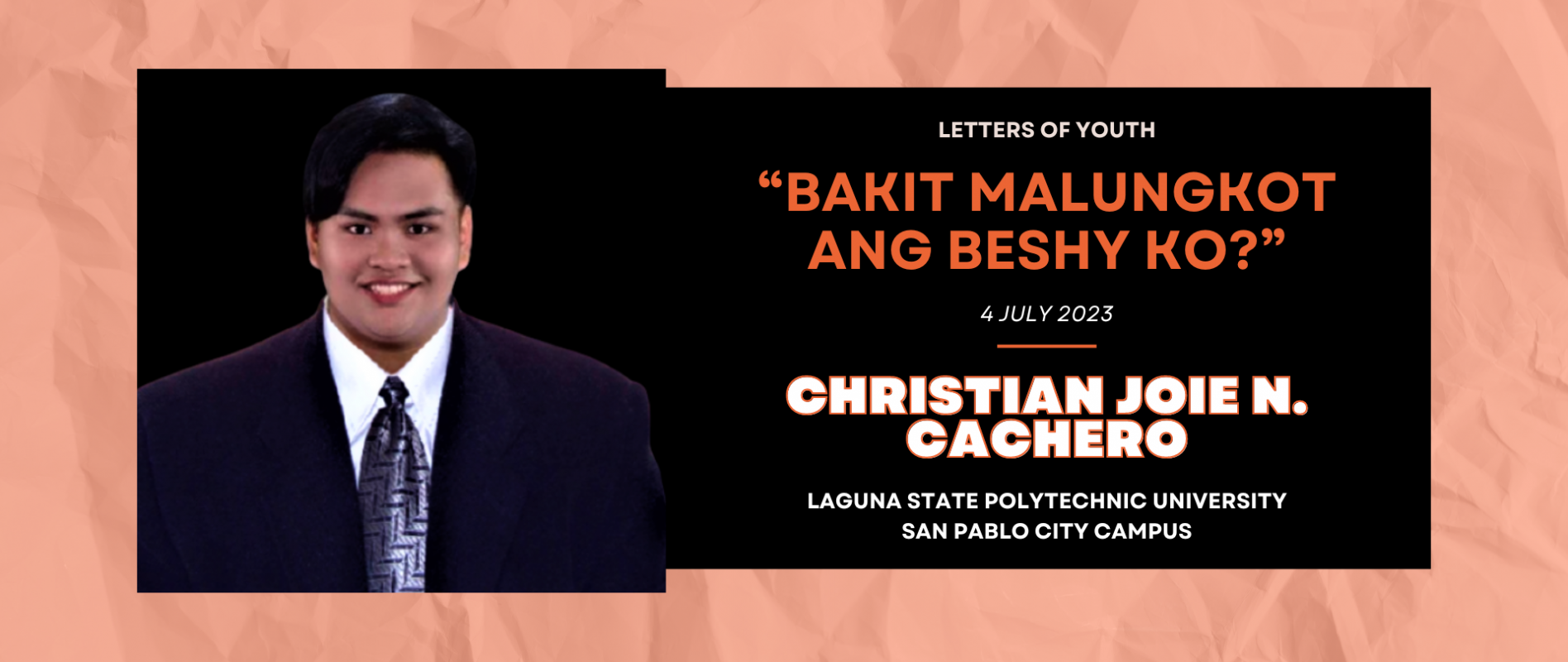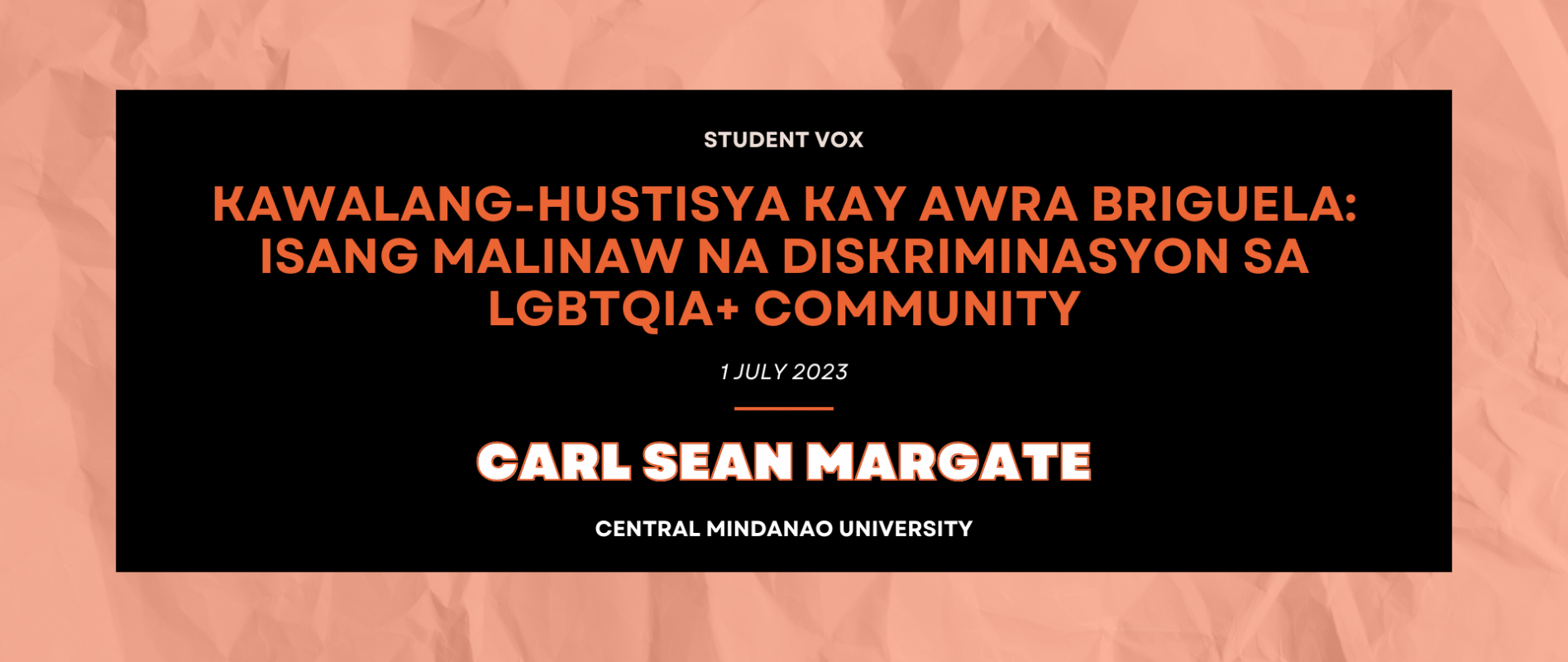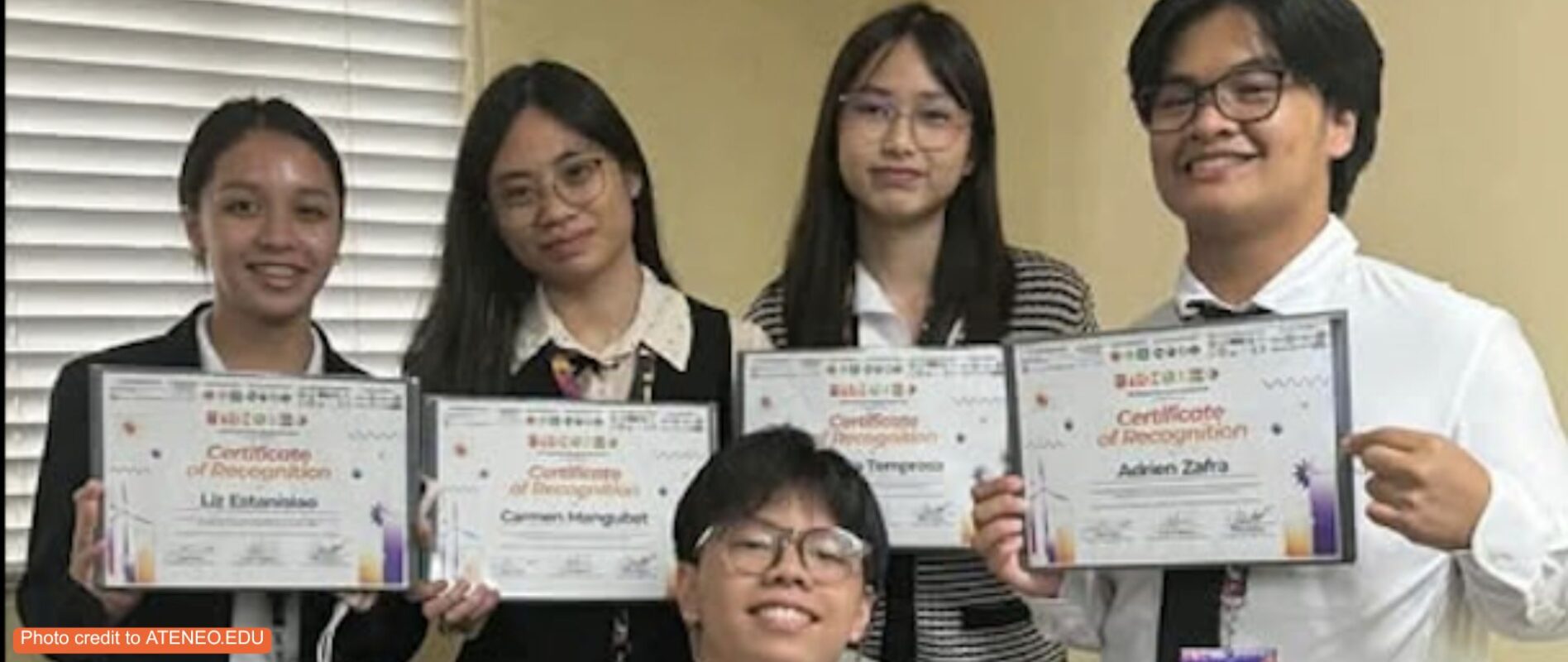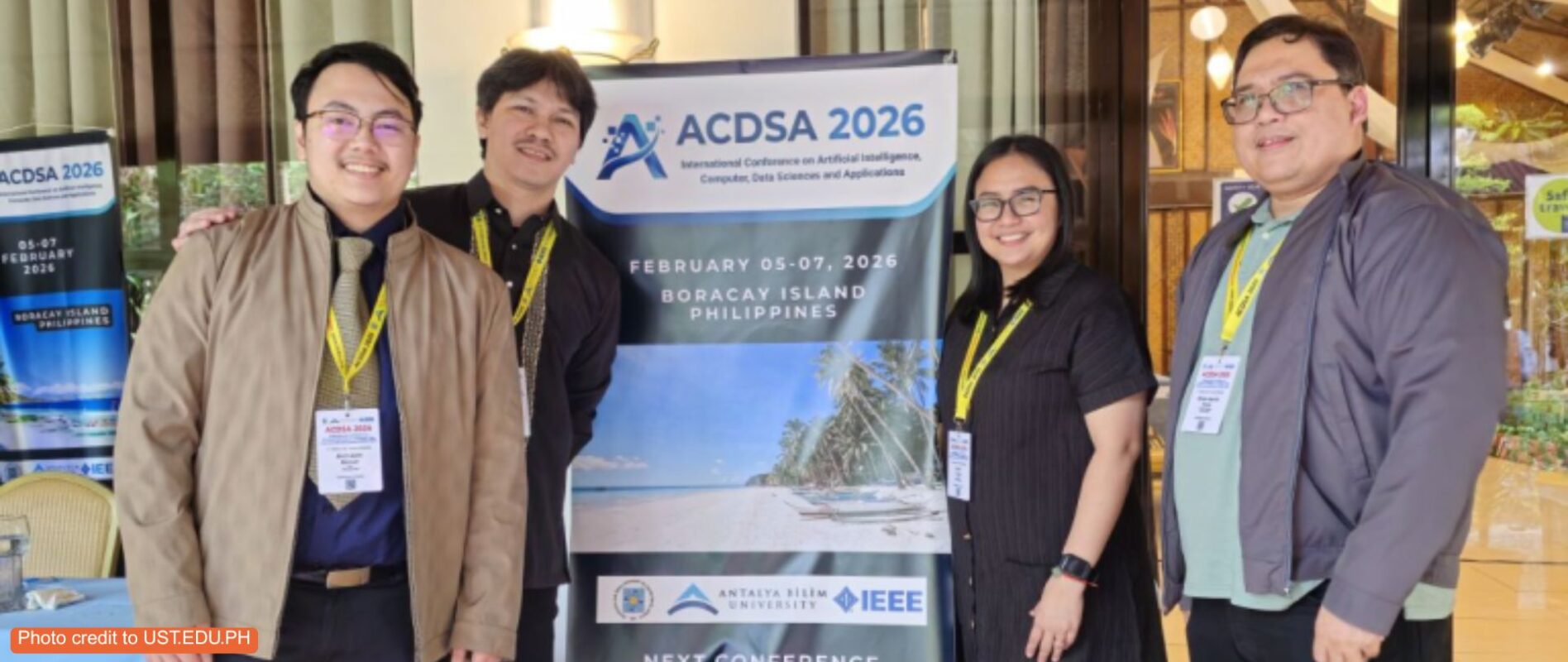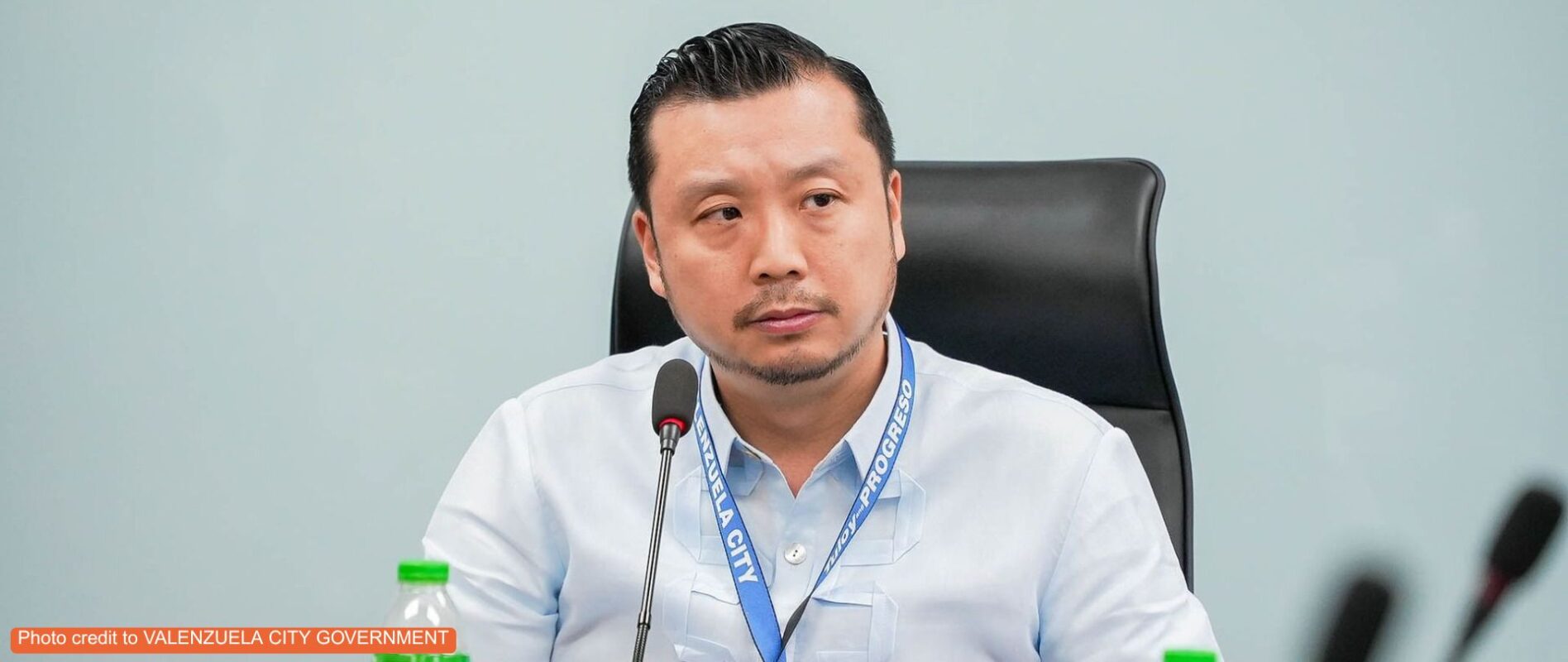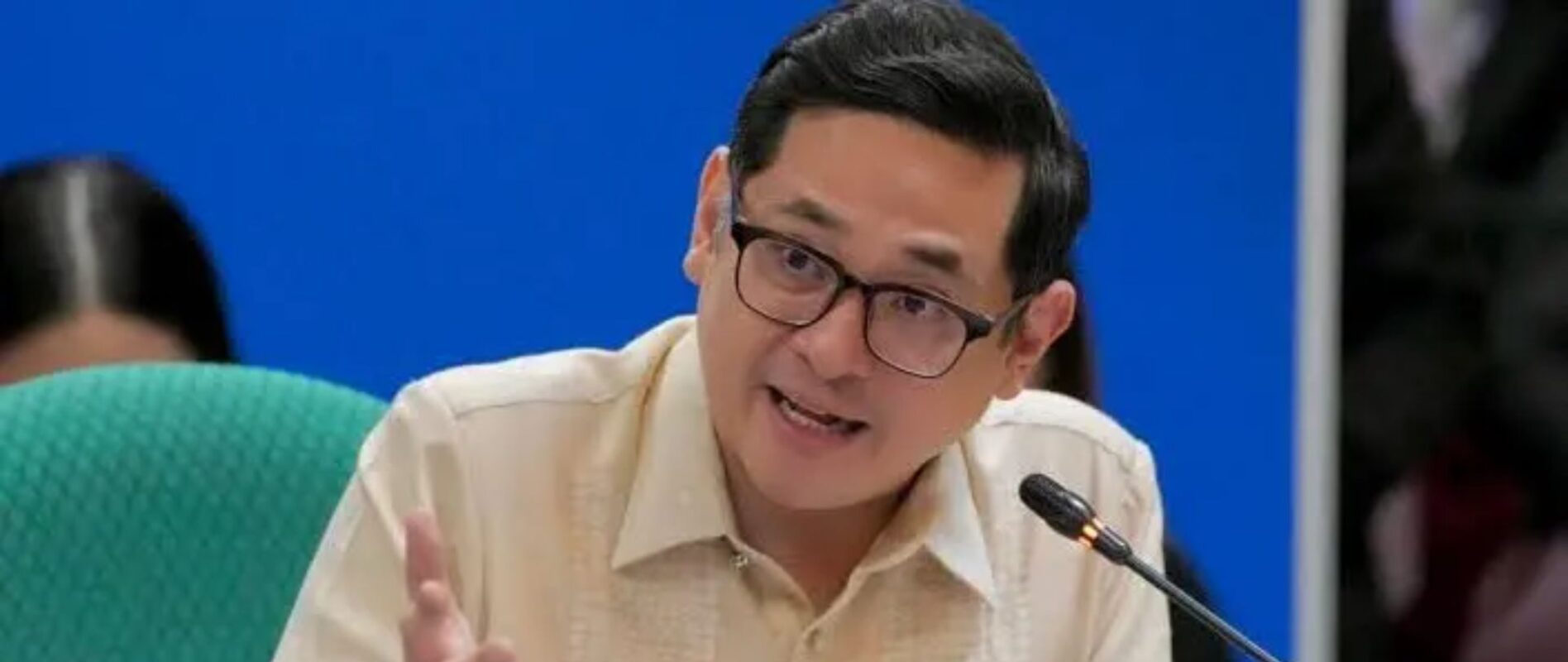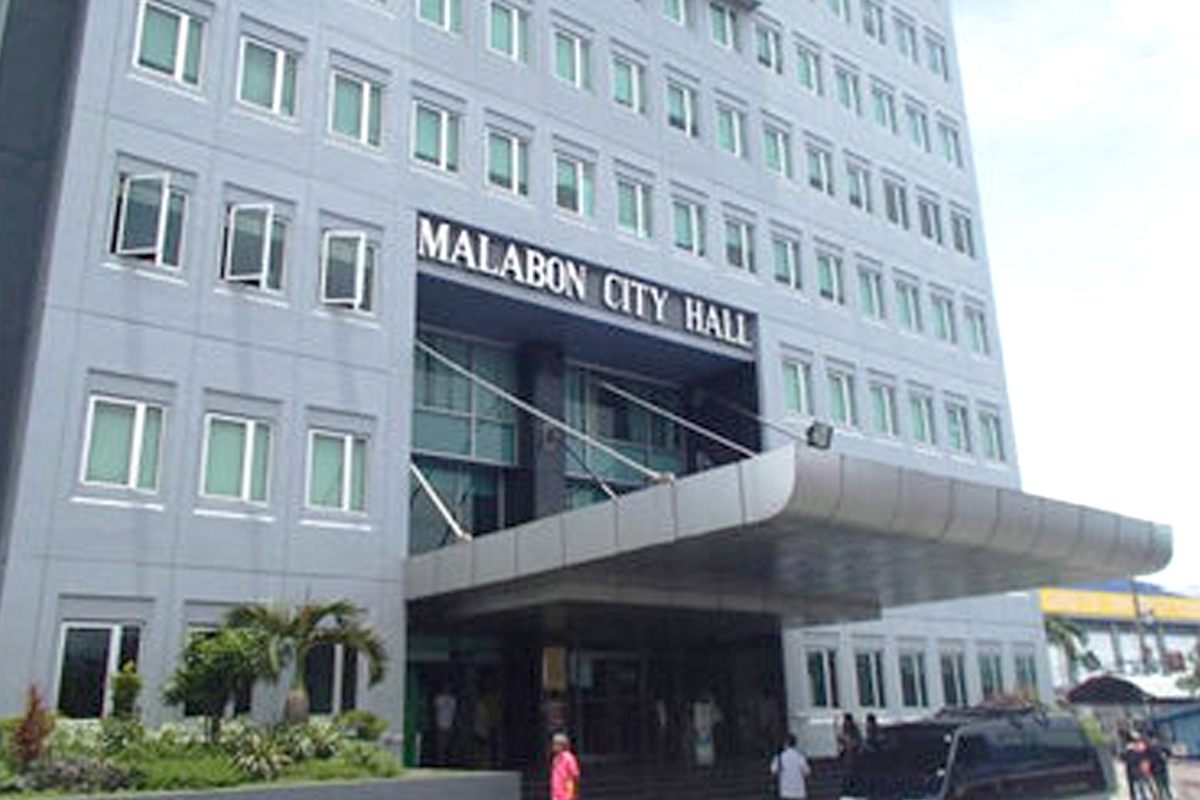WE CAN BUT WE MAY NOT
One of the phenomena in the Generation Z era is Facebook. It is a social media site wherein people, from the comfort and security of their respective homes, create intercontinental relations through real-time posts and updates. Through this medium, people tend to express their opinions about matters which matter (political and/or philosophical reflections, medical breakthroughs, and current events) or to those of lesser importance (immortalizing themselves through more-putol-more-sosyal selfies and/or “Instagram-able” photos).
Why share on Facebook?
A 2013 Harvard University study found that “sharing personal beliefs or feelings on social media works as a release for people because it rewards them for letting something out rather than keeping it in.” The study also found that people who post on Facebook also look for the approval of others and they “become more confident in their beliefs” when more people like, comment, or share their posts (perhaps this is also the reason why some people bombard their posts with kilometric hashtags). A 2014 study, from Pew Research Center, found that the people posting opinions on social media are “less-likely to share their opinions in face-to-face setting” because they feel safer giving out their retorts behind a computer screen rather than in person.
The field of Facebook which provides people with self-affirmation and security is, unfortunately, the same avenue where bashing and defaming are made drastically easier. This is where the celebrated right to free expression needs to be curbed; rhetorically coined by Jean-Jacques Rousseau, a political philosopher, as “man is born free but everywhere he is in chains.” The state may legitimately “chain” her people if and only if the latter willingly makes a social contract in which they will agree to be ruled by that same society in exchange for protection and other benefits.
As part of the Philippine state or society, the people must abide by the Congress of the Philippines when it passed the Cybercrime Prevention Act of 2012 as law – a chain which seemingly curtails the freedom of the Filipino people in the cyber world. One of the provisions of the law is that a person or entity who posts something (in words or pictures) – which can be proven false and is intended to taint the reputation of another by tending to bring the target to ridicule, hatred, scorn, or contempt of others – may be arrested, detained, and imprisoned for libel. It is noteworthy, however, that this online/internet libel law only punishes the original author of the post. Those who liked shared, retweeted, or re-blogged a false and defamatory post will not be held criminally liable unless that person added a comment that is deemed to be libelous by a complainant. In other words, posting false and defamatory remarks on Facebook (or any other social media site) may and will send us to jail by the social contract we have with the Philippine state. Not knowing the law does not excuse us from being prosecuted and imprisoned for ignorance of the law excuses no one from compliance therewith. Ignorantia legis neminem excusat.
However, beyond the shackles the Philippines fettered us with, we are also chained by a greater society – humanity. We are all part of human society. We may be different from each other because of our accidents (complexion, nationality, physique) but we are, at the same time, one because we exist as humans capable of feeling empathy and sympathy, bound by finitude and temporality – as David Hume and Thomas Aquinas argued. Unlike the “chains” of the Philippine State, the “chains” of humanity are self-imposed. Due to being part of this grander society, we should provide ourselves with the chains of being human – of self-control, self-regulation, of self-moderation. Beyond the “chains” that society imposes on us, we are first and foremost cuffed by the shackles of being human.
Transcending whatever law that may be passed regulating our freedom on the internet, we, as humans, must know better. We, of all creatures, must know that being shamelessly ridiculed in the most public medium devastates the ego of the other. We must know that being baselessly mocked online obliterates one’s self-worth. We must know that being mischievously scorned in front of the whole world incinerates one’s dignity. For, this is one of the things which makes us human – we can empathize. One’s complexion, nationality, and physique are superficial compared to our ability to put ourselves in another’s shoes. Is defaming not contrary to empathy? Are we not degrading ourselves when we blatantly ridicule someone in public? After all, “true nobility is not being superior to others. It is being superior to your former self.”
Wherefore, with all our grandiosity and intellect, we must realize that we, stripped off of our accidental luster, are all equal. Who are we to defame other people if we are all equal? Are we that barbaric to lack self-restraint and self-regulation to nonchalantly taint the escutcheon of the other? We are humans. We, of all creatures, must know best. We owe it to ourselves to know that our right to free expression, like all other rights guaranteed by the Bill of Rights, is not absolute – it is subject to the fetters of the State and of Humanity. One may post whatever he likes on the world wide web as long as it does not deliberately prejudice another person or entity based on false information. Our right to freely swing our arms ends just where another man’s nose begins.
Today we are living in a sophisticated community wherein there is a huge difference between what we can do and what we may do. We, the only thinking beings in the world, must know the difference, right? The answer is elementary after all.
We can because we are free.
We may not because we are living in a society.
We may not because we are humans…we should know best.


